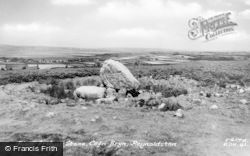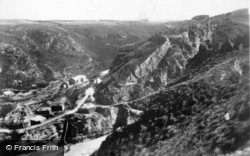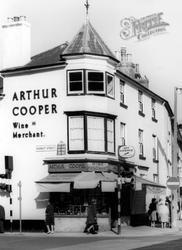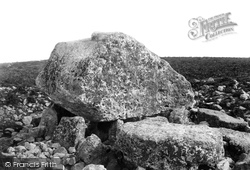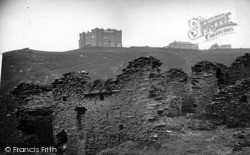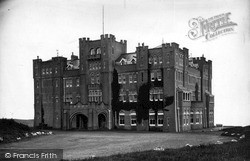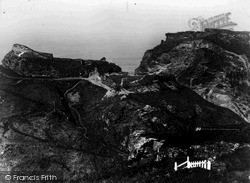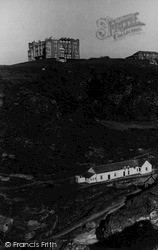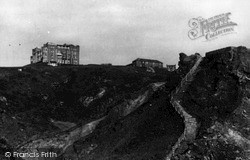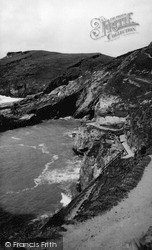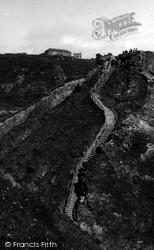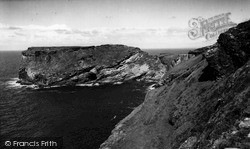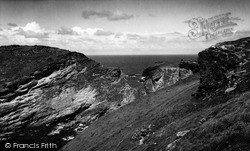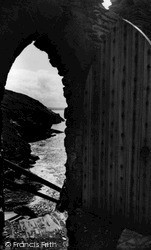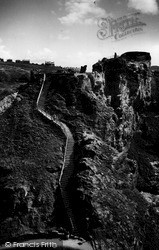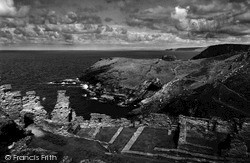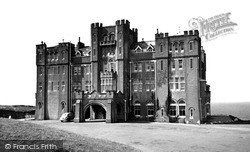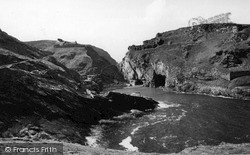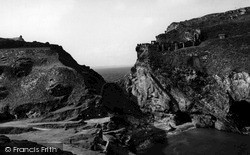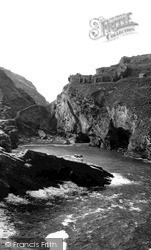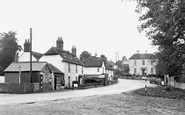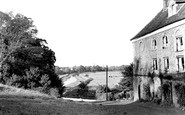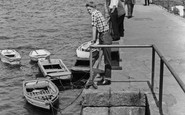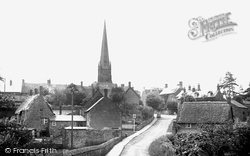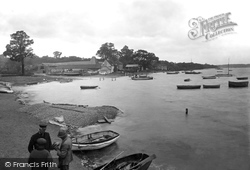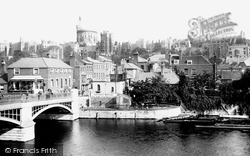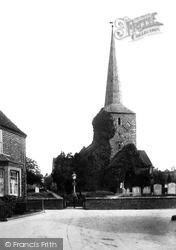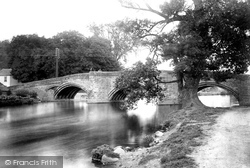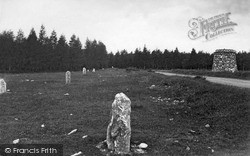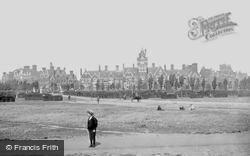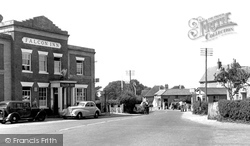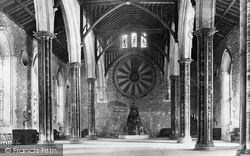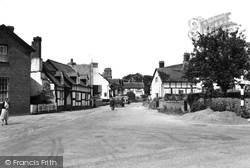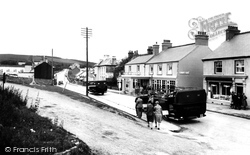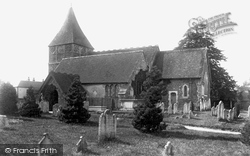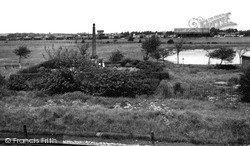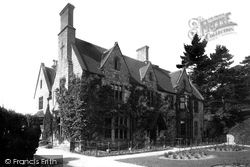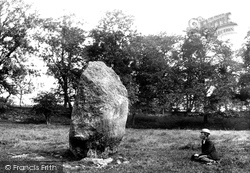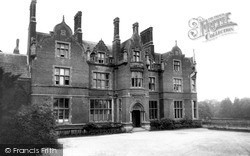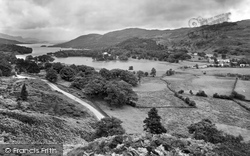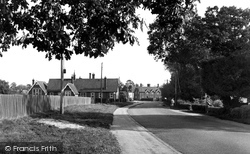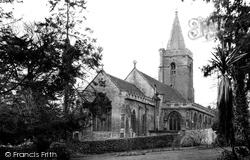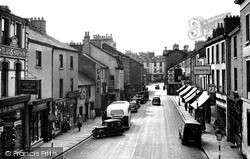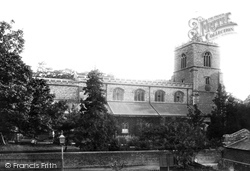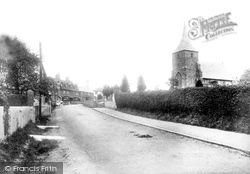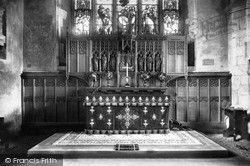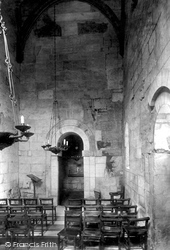Places
2 places found.
Those places high-lighted have photos. All locations may have maps, books and memories.
Photos
167 photos found. Showing results 61 to 80.
Maps
2 maps found.
Books
Sorry, no books were found that related to your search.
Memories
616 memories found. Showing results 31 to 40.
Harriott Brothers The Butcher's Shop
My Father was Arthur Harriott who owned Harriott Brothers Butchers Shop (which can be seen at the bottom left-hand corner of the picture) together with his Brother, Edward. We lived in "Old Sarum" which is the ...Read more
A memory of Droxford in 1950 by
Stubbington 1964 67
I landed up in Stubbington after Boxgrove School in Guildford closed ( truly Dickensian!) I was terrified of Arthur Moore, he was just awful, I never had a clue about latin and he really enjoyed the fact that I was a waste of ...Read more
A memory of Stubbington by
Heswall Childrens Hospital
I was transferred from Myrtle Street to Heswall in 1953 as a TB contact, I was in a few wards. One faced the main entrance to the Hospital, another one had a partition across the middle separating the girls from the ...Read more
A memory of Heswall in 1953 by
My Memories Of Burnt House Farm Alfriston Circa 1938
I remember being taken down to Alfriston in the 1930s before the Second World War. My great-aunt and great-uncle, Polly and Arthur Newell, had a smallholding on the downs, about half a mile ...Read more
A memory of Alfriston by
My Dad Dennis
Hello. My dad was born in Arlesey 1926 at 77 High Street, his name is Dennis James Saunderson. His mother was Ada Lillian Saunderson and his father was Arthur Taleyson Jones, they married in Biggleswade registry office December 24th ...Read more
A memory of Arlesey in 1920 by
Looking Back To The Early Days
I was born in rented 'rooms' at Wordsworth Road in 1936 and came to move with my parents to five different addresses at Easington before I moved away from the area, when I married in 1963. But although my ...Read more
A memory of Easington Colliery in 1900 by
Fish Strand Quay
Yes, I 'grew up' on Fish Strand and still use it to this day. My father kept various boats off the quay and we always had a dinghy moored there, and we still do, my father is now in his 90s and I have 2 grandaughters. I ...Read more
A memory of Falmouth in 1958 by
Small Boystoys And Other Pastimes 1930s
bill.haylor@btinternet.com Resident in and around Smallfield for 81 yrs A large number of our toys were made from wood, dependant on what tools were available in fathers shed, if it was unlocked! The ...Read more
A memory of Smallfield in 1930 by
Netherthong First World War History Part 1
Netherthong War Memorial My full history of Netherthong can be seen on http://historyofnetherthong.co.uk 'We shall never forget.' M. Hirst, who lived at 33 Outlane, compiled a large book full ...Read more
A memory of Netherthong by
Netherthong In The First World War Part 3
Private John Henry Hoyle was born in Wilson Square in 1879 and he joined the Royal Welsh Fusiliers (Teacher Battalion) in January 1916. He was reported as missing and his body was found on March ...Read more
A memory of Netherthong by
Captions
175 captions found. Showing results 73 to 96.
Historian Arthur Mee, in his book 'The King's England - Oxfordshire,' says that 'if our England is a garden Great Tew is one of its rare plots...never anything but beautiful'.
Arthur Ransome included Pin Mill and its activities in We Didn't Mean to go to Sea (1937).
The small white building behind the sign for Arthur Moyse, coal and coke merchant, was the 19th-century tollhouse.
The village of Eynsford was once home to a well known man of Kent, the writer and historian Arthur Mee.
It is perhaps best known for its two prehistoric monuments: King Arthur's Round Table, a Bronze Age henge, and the former Neolithic stone circle and henge at Mayburgh, of which only one standing stone
On the right is the memorial cairn built in 1881 by Arthur Forbes of Culloden.
H.G.Wells and Rudyard Kipling spent their formative years locally, and Arthur Conan Doyle established a med- ical practice in the town in 1882.
Legend relates that it was close to here that the Saxon warlord Cerdic landed to begin the Saxon invasion of southern England, only to be thwarted by the British war-leader Arthur.
The Round Table, traditionally associated with King Arthur, can be seen hanging on the west wall.
Although Arthur Conan Doyle set his novel 'The Hound of the Baskervilles' in Dartmoor, he got his inspiration here – the Baskerville family once owned Eardisley's castle and the story of the black
Thus Arthur Mee captures the forbidding character of this remote community, beset by fogs and rain.
A new village was born around the railway station and with it a new church, St Mary's, built in 1892 by Sir Arthur Blomfield.
This pleasant open space next to the railway line was donated as a recreation ground by Alderman Arthur Bennett, a former mayor and a passionate believer in the importance of preserving Warrington's historic
It became St Michael's College in 1887, with the Rev Arthur R Sharpe as headmaster.
Known collectively as the 'Penrith Henges', the other two are King Arthur's Round Table and the Little Round Table, though little remains of the latter.
In the late 20th century, the Hall became the Arthur Findlay College for the Advancement of Physical Science.
This is the land of Swallows and Amazons, for near the foot of Coniston Water lies High Nibthwaite, where the author, Arthur Ransome spent his childhood holidays and developed a passion for the area that
Historian Arthur Mee described Botley as 'a delightful old town with quaint shops, handsome houses, and pretty inns'.
Arthur Mee described Holy Trinity Church as 'a fine church with many fine possessions'.
In 1890, the town was the birthplace of Arthur Stanley Jefferson, better known as Stan Laurel, and a museum in Upper Brook Street, off to the right, celebrates his partnership with Oliver
The nave and chancel were rebuilt again in flint in the 1880s by Sir Arthur Blomfield with rainwater heads dated 1884.
The medieval church, with its plain west tower and stumpy shingled broach spire, was extensively restored, not entirely successfully, in the 1850s by William Slater for the dynamic Reverend Arthur Eden
The design was by Sir Arthur Blomfield, and it was carved by Thomas Nicholls of Kennington.
Arthur Mee in his King's England series says about the church: 'It is naked and bare, and all the better for that'.
Places (2)
Photos (167)
Memories (616)
Books (0)
Maps (2)


